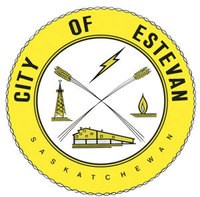The annual snapshot of the city’s fiscal position shows a financial position that continues to improve.
Estevan city council received the audited financial statements for the year ending Dec. 31, 2020, during Monday night’s council meeting. Gisele Bourgeois from accounting firm MNP presented the document.
The financials show that the city had a net debt – the total excess of liabilities versus assets – of $18.3 million, down from $19.6 million at the end of 2019. The city has been working to reduce its net debt for nearly a decade.
Assets were at $14.16 million, down from $14.80 million the previous year. Cash and temporary assets were at $7.45 million as of the end of 2020, up from $6.12 million to end 2019. Restricted cash accounted for $5.64 million in the cash total.
Bourgeois noted that taxes receivable increased from nearly $1.6 million to $2.22 million, and she said a lot of that is due to the impact of COVID-19.
“Many people aren’t paying their taxes as quickly as they would have in the past,” said Bourgeois.
As for liabilities, the biggest one for the city remains long-term debt, which stood at $21.1 million at the end of 2020, compared with $23.70 million at the end of 2019.
Accounts payable increased $1.5 million to $2.2 million, as there were various lingering expenses for capital projects.
Revenues for last year were at $33.23 million, up from $33.16 million the previous year. Taxes and other unconditional revenue stood at $21.25 million, and fees and charges accounted for a little more than $9.8 million. Bourgeois noted there would be an expected reduction in money coming in from fees and charges due to the closure of recreation facilities during the pandemic.
The city did receive grants for the safe restart from the COVID-19, along with funds for the ongoing coal transition.
Expenses were at $30.90 million, down from $31.69 million in 2019. Protective services ($6.37 million) and recreation and cultural services ($6.36 million) accounted for the largest share of expenses, followed by general government services ($5.60 million), transportation services ($5.42 million) and utility services ($5.30 million).
The city recorded a surplus of revenues over expenses of $2.32 million, and after provincial/federal capital grants of $3.47 million, that surplus grew to $5.80 million.
Mayor Roy Ludwig said he is pleased to see that the city has been able to reduce its long-term debt and net debt.
“We’re continuing to go in the right direction, we’re continuing to pay down debt, we’re continuing to get the needed infrastructure work done, and that’s a very positive sign. This was started a few councils ago and I’m so happy to see that the new council is on the same path,” said Ludwig.
Bourgeois applauded the city for getting its finances into better shape in recent years.



